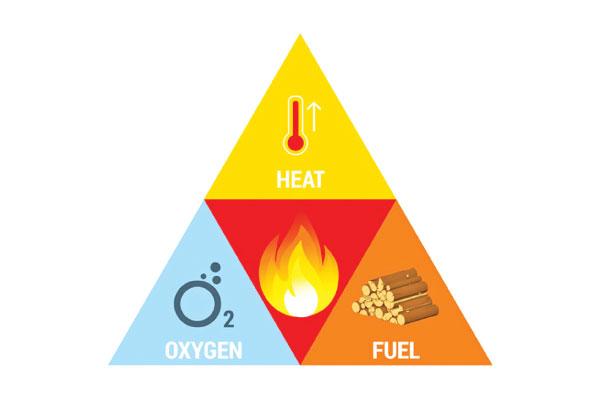
Question 1: Water should not be used to extinguish burning petrol or diesel fires. Why?
Answer 1: Petrol or diesel in the fire will need oxygen from air, to keep on burning. Water is more dense (heavier) than fire. Therefore, the water that is poured on such a fire, will sink to the bottom, so that the petrol stays floating on top, to be in contact with oxygen and will continue to burn.
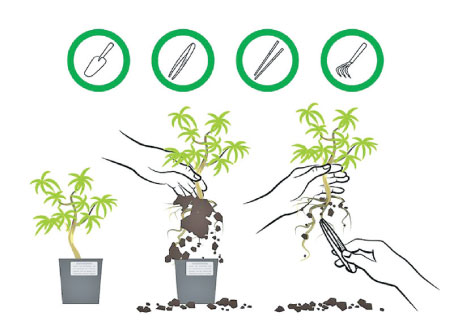 Question 2: Cutting the main stem of trees like mango and jak make them grow even better. But not so for coconut, or other palm trees. Why?
Question 2: Cutting the main stem of trees like mango and jak make them grow even better. But not so for coconut, or other palm trees. Why?
Answer 2: Stems of dicot trees like mango and jak show extensive branching, since their lateral buds are usually active. In addition, they grow tall by the action of their terminal buds. But in trees like coconut and other palms which are monocots, only the terminal bud is active, causing the tree to grow tall. When the stem is cut, or the tree is trimmed, the terminal bud gets removed, and the direct increase in height is prevented in both dicots and monocots. Also, since all the leaves get removed the monocot cannot manufacture food, and will ultimately die. In dicots, the lower lateral buds become more active in the absence of the terminal bud, and will produce branches bearing more leaves, and will grow better.
 Question 3: Food can be preserved in a freezer for a long time, but in the fridge, food gets spoilt after a few days. Why?
Question 3: Food can be preserved in a freezer for a long time, but in the fridge, food gets spoilt after a few days. Why?
Answer 3: Raw or cooked food gets spoilt by the bacteria falling on it. Bacteria and their spores are all over in the air. When they fall on the food, they secrete enzymes and various substances onto the food in order to digest that food. But this enzyme action does not occur at the very low temperature that is in the freezer. But inside the refrigerator, the temperature is a little higher than in the freezer, though much lower than outside. So, bacterial action can still occur at a low rate inside the fridge. So, the substances that cause food spoilage get accumulated sufficiently on the food, if kept in the refrigerator for long periods of time.
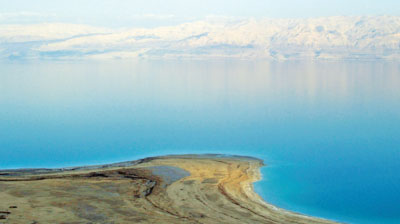 Question 4: Why is the Dead Sea “dead”?
Question 4: Why is the Dead Sea “dead”?
Answer 4: Normally, the salt concentration in the sea is higher than that in rivers and lakes. Yet, a large number of plants and animals can live in the seas without getting dehydrated. This is because the cells of these organisms contain a higher concentration of soluble substances, preventing loss of water from these cells. The water in the Dead Sea has a much higher concentration of dissolved salts. So any living organism coming in contact with this very strong salt solution for a long time, will lose water and will die of dehydration. So the sea cannot support life and is hence, a dead sea.
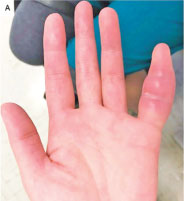 Question 5: If a certain part of our body bangs onto a hard object, the skin in that area gets red at first, but later turns blue. Why?
Question 5: If a certain part of our body bangs onto a hard object, the skin in that area gets red at first, but later turns blue. Why?
Answer 5: Arteries and veins are the two types of blood vessels in the body.When a part of the body bumps onto a hard object, the thin-walled veins just under the skin, break, releasing blood. Though it is from a vein, at the moment of rupture this blood contains some oxygen in its haemoglobin. So this blood is red. This blood then spreads under the skin, giving a red coloured patch . Very soon the oxygen in this blood gets used up, making the blood in that area get a blue tinge.
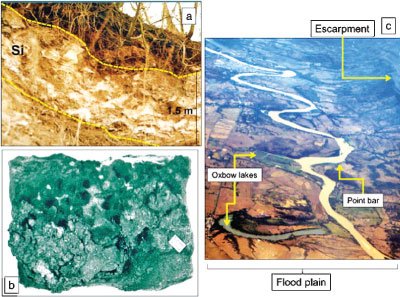 Question 6: Stones and rocks always fall downhill. Water also flows downstream, never upstream. Why?
Question 6: Stones and rocks always fall downhill. Water also flows downstream, never upstream. Why?
Answer 6: The gravitational force of attraction exerted by the earth, pulls all material towards the centre of the earth. When any object is at a height above ground, it has to act against the gravitational pull of the earth. Hence for it to be at a higher point, it has to have a certain amount of energy to resist the gravitational pull. This is called 'potential energy.' Energy flows from a place where it is at a higher value to a place which requires a lower amount. So, if the rock or water is not held back in place up there, they are bound to come down as a free-fall, due to gravitational pull, losing their potential energy in the process. This makes anything at a lower level more stable.
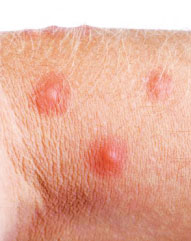 Question 7: Why is the bite of red ants very painful and itchy?
Question 7: Why is the bite of red ants very painful and itchy?
Answer 7: Mouth parts of insects, including those of ants, are hard. When an ant bites us, our skin gets damaged. Red ants produce certain substances including formic acid (methanoic acid). When this acid enters our body through the wound made by the ant-bite, a reaction starts in the skin which causes a severe, painful itch.
